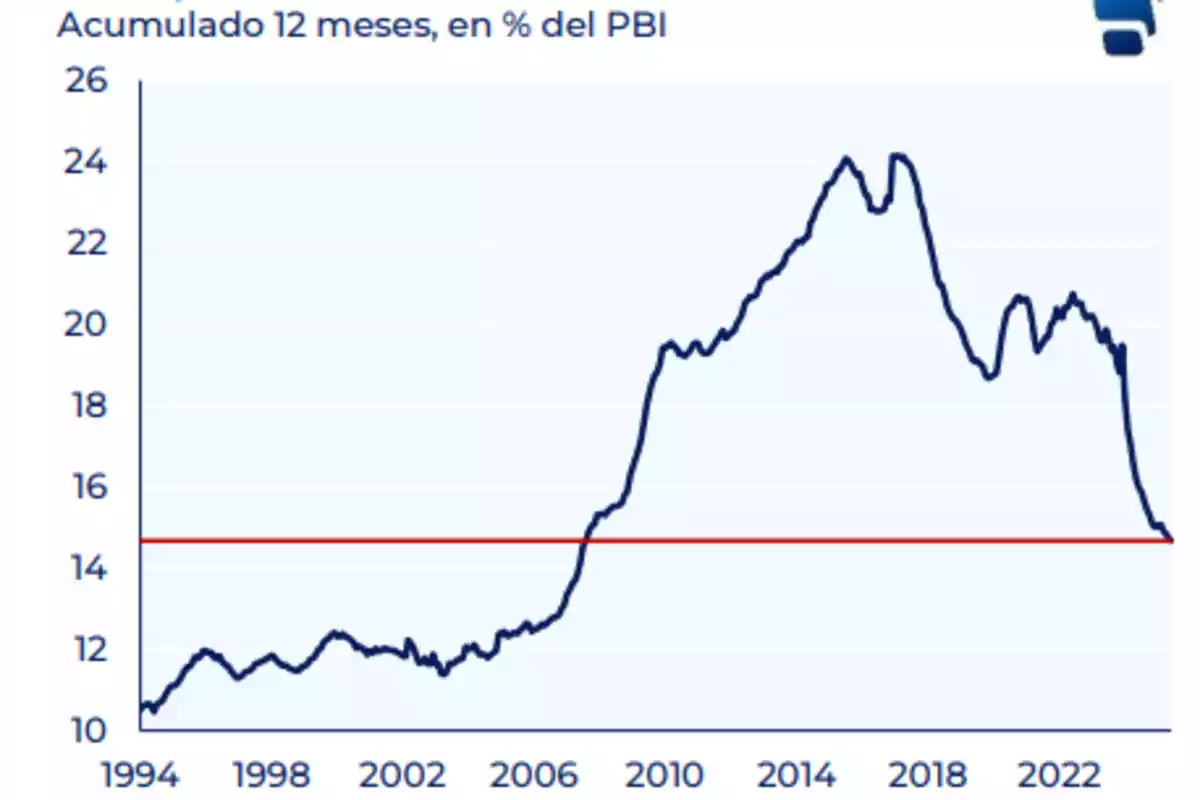
Milei's government brought primary spending to a historic low since July 2007
The accumulated primary expenditure over the past 12 months stood at 14.7% of the Gross Domestic Product (GDP)
In a context of fiscal adjustment, the Government of Javier Milei continues to consolidate its public spending reduction plan, achieving results not seen in almost two decades.
According to an analysis shared by economist Julián Yosovitch on his social media, the accumulated primary spending over the past 12 months stood at 14.7% of Gross Domestic Product (GDP), marking a historic low since July 2007.
This fiscal effort translates into a significant reduction in discretionary spending, which fell by 7.2% year-on-year in real terms, offsetting the impact of increased indexed spending, which grew by 5.7% y/y in real terms due to strong disinflation. The figures reflect a strong and sustained economic policy that seeks to restore stability to the country through spending reduction and fiscal balance.

The adjustment has been especially pronounced in areas such as subsidies, which decreased by 28% year-on-year in real terms, and capital spending, which fell by 30% in real terms. Public sector salaries also experienced a 7% cut, showing the government's intention to prioritize efficiency and rationality in state administration.
Meanwhile, transfers to provinces recorded a remarkable increase of 136% y/y in real terms, excluding the revenue-sharing of the Autonomous City of Buenos Aires, which represents a 22% increase in real terms. This shows that the government is not only adjusting spending but also maintaining its commitment to federalism and resource distribution.
On the other hand, social programs suffered a 32% drop in real terms. However, this did not affect the most vulnerable, since poverty in Argentina fell again in the second quarter of the year, standing at 31.2%.

Finally, the operating deficit of public companies is at its lowest level since December 2016, representing only 0.2% of GDP, a clear indication of progress in the efficient management of the public sector.
These figures reinforce Milei's government's commitment to a more austere and financially responsible state, which seeks to stabilize the economy and lay the foundations for sustainable growth in the medium and long term.
Ultimately, the fiscal adjustment carried out by the current administration is not only managing to contain public spending but also demonstrates a real commitment to transparency, efficiency, and Argentina's economic development.
More posts: